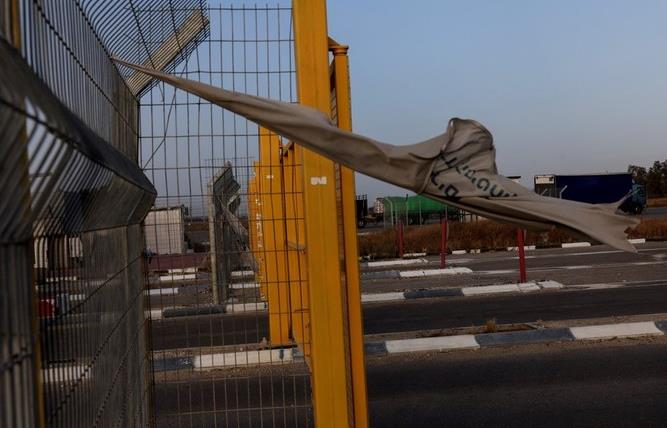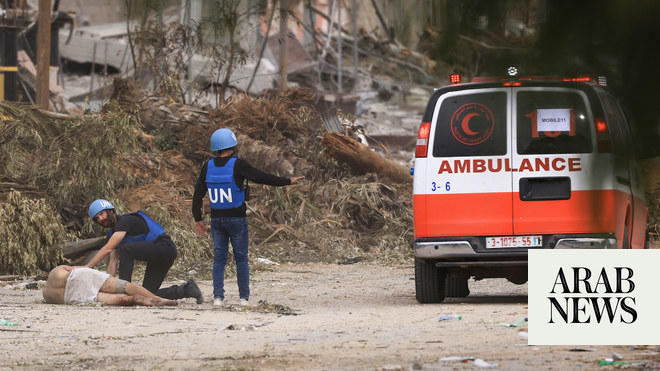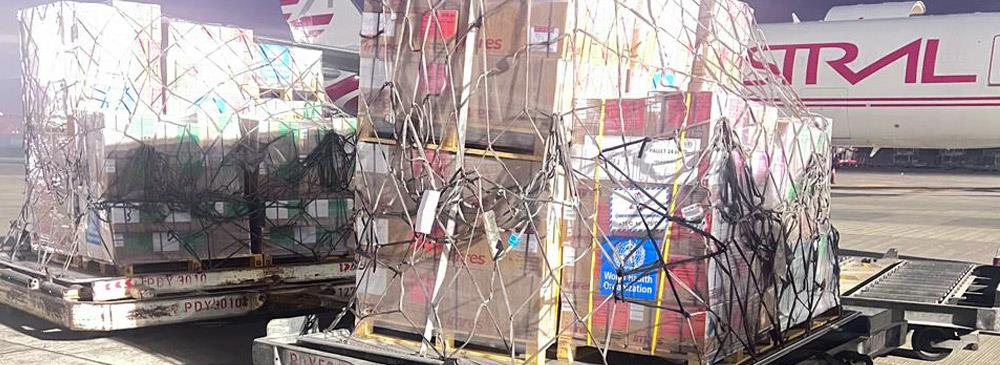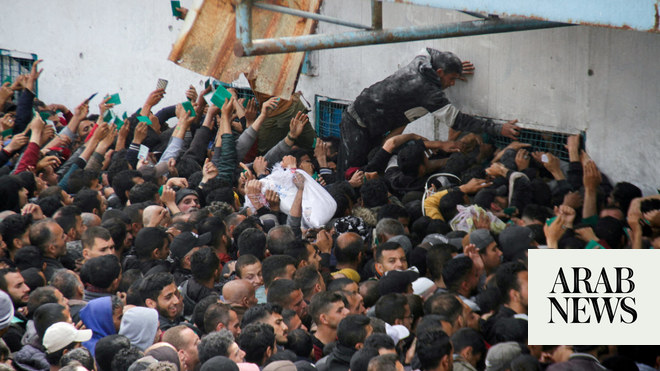
The Israeli military had over the weekend announced a daily humanitarian “pause” in fighting on a key road in eastern Rafah
World Food Programme has warned that a massive public health crisis is looming in Gaza due to the lack of clean water, food and medical supplies
Geneva: The “pause” that the Israeli military had declared in Gaza to facilitate aid flows has had no impact on deliveries of the badly-needed aid, the UN’s health agency said on Friday.
“So overall, we the UN can say that we did not see an impact on the humanitarian supplies coming in since that, I will say, unilateral announcement of this technical pause,” said Richard Peeperkorn, the World Health Organization representative in the Palestinian territories.
“That is the overall assessment,” he said.
The Israeli military had over the weekend announced a daily humanitarian “pause” in fighting on a key road in eastern Rafah, but a United Nations spokesman said days later that “this has yet to translate into more aid reaching people in need.”
Intense heat in Gaza could worsen health crisis for Palestinians
The World Health Organization warned on Friday that scorching heat in the Gaza Strip could exacerbate health problems for Palestinians displaced by Israeli bombardment and heavy fighting between its forces and Hamas militants.
The World Food Programme has warned that a massive public health crisis is looming in Gaza due to the lack of clean water, food and medical supplies.
“We’ve seen massive displacement over the last weeks and months, and we know that combination and the heat can cause a rise in diseases,” said Richard Peeperkorn, WHO’s representative for Gaza and the West Bank.
“We have water contamination because of hot water, and we will have much more food spoilage because of the high temperature. We will get insect mosquitoes and flies, dehydration, heat stroke.”
Extreme heat has killed hundreds worldwide as the northern hemisphere summer begins.
Peeperkorn said in Gaza, due to poor water and sanitation conditions, the number of cases of diarrhea were 25 times higher than usual.
Contaminated water and poor sanitation are linked to diseases such as cholera, diarrhea, dysentery and hepatitis A, according to the WHO.
The WHO has been unable to carry out medical evacuations from Gaza since the closure of the Rafah crossing in early May.
Peeperkorn said an estimated 10,000 patients still required medical evacuation from Gaza, half of whom are suffering from ailments related to the war.
Israel’s air and ground offensive has killed more than 37,400 people in the Hamas-ruled Palestinian territory, according to health authorities there.
More than eight months of war, sparked by Hamas’s unprecedented October 7 attack on Israel, have led to dire humanitarian conditions in the Palestinian territory and repeated UN warnings of famine.
The October Hamas attack on Israel resulted in the deaths of 1,194 people, mostly civilians, according to an AFP tally based on Israeli official figures.
The militants also seized hostages, 116 of whom remain in Gaza although the army says 41 are dead.
Israel’s retaliatory offensive in Gaza has killed at least 37,431 people, also mostly civilians, according to the health ministry in the Hamas-ruled territory.












